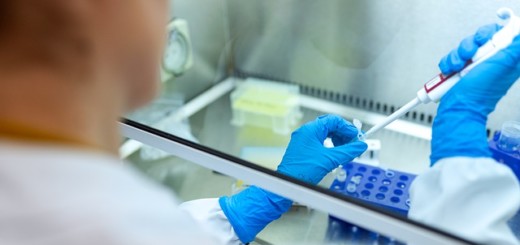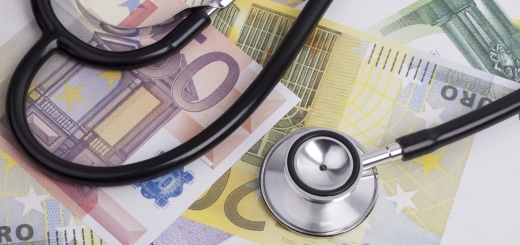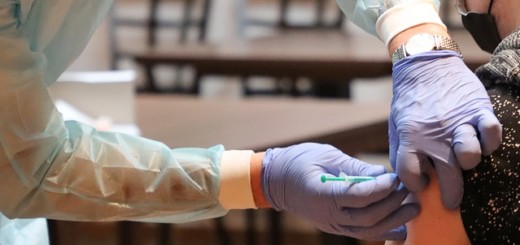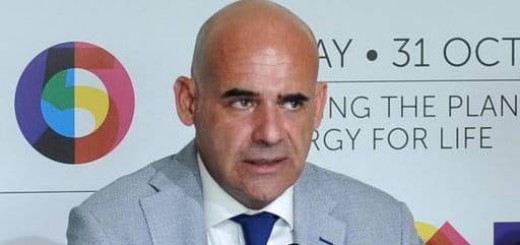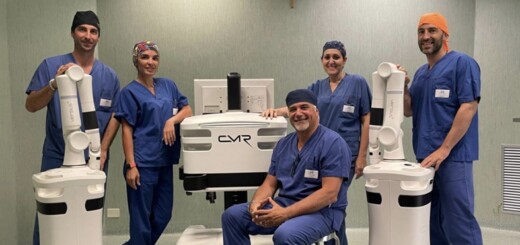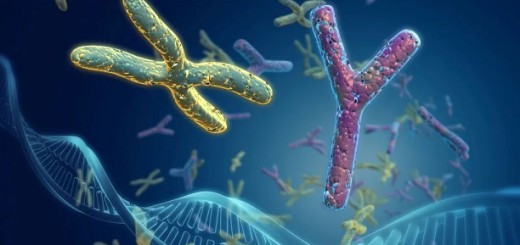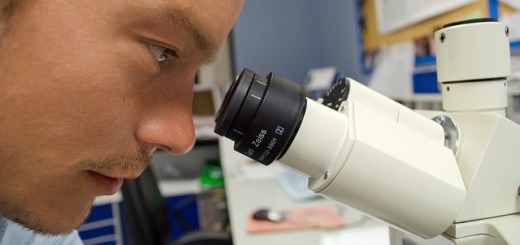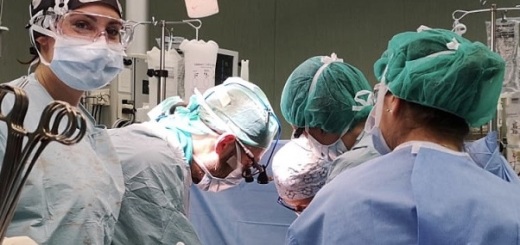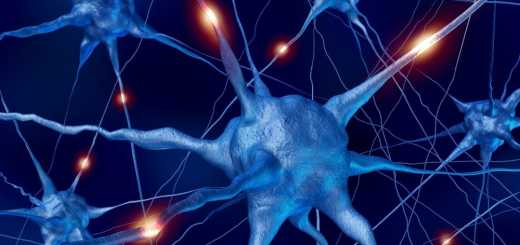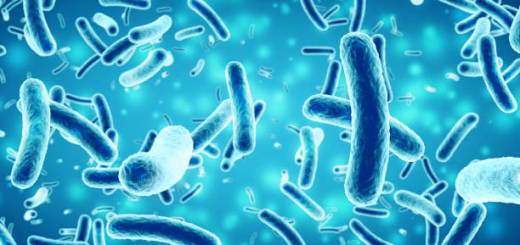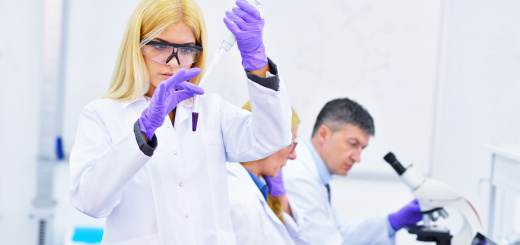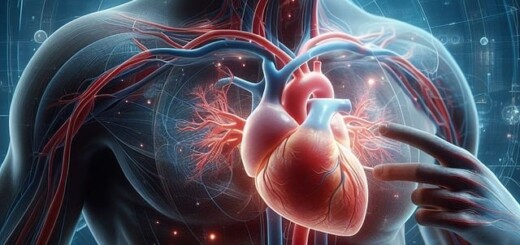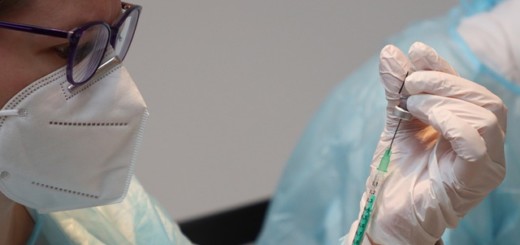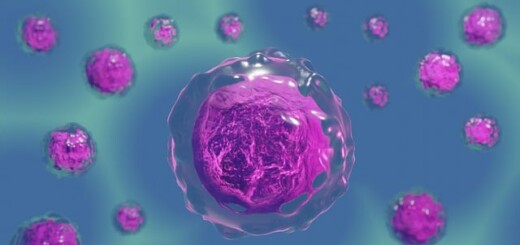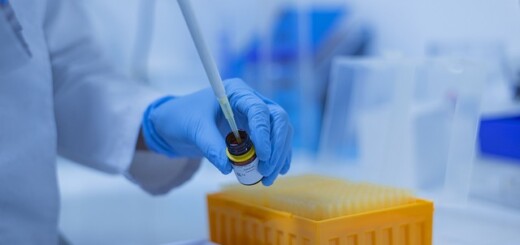Covid-19, studio rivela che bassi livelli di testosterone sono correlati a una prognosi peggiore

Milano, 8 luglio 2021 – Gli uomini con Covid-19 sintomatico, che hanno riscontrato un basso livello di testosterone dopo il ricovero in ospedale, avevano maggiori probabilità di ammalarsi gravemente e morire a causa della malattia, lo rivela una nuova ricerca.
Lo studio, condotto a Milano durante la prima ondata di coronavirus nel 2020, ha rilevato che più bassi sono i livelli di testosterone, maggiore è la probabilità che i pazienti di sesso maschile abbiano bisogno di cure intensive, essere intubati e ventilati, e rimanere in ospedale per un periodo più lungo. La loro probabilità di morire è aumentata di sei volte.
I risultati vengono presentati al congresso dell’Associazione Europea di Urologia, EAU21, che si terrà questa settimana dall’8 al 12 luglio.

Il prof. Andrea Salonia e i suoi colleghi dell’Ospedale Universitario San Raffaele di Milano hanno confrontato 286 pazienti Covid maschi, giunti al pronto soccorso, con 305 volontari maschi sani, che si sono recati in ospedale per donare il sangue tra febbraio e maggio 2020.
Il team ha controllato sia i pazienti che i volontari per i livelli di ormoni maschili, incluso il testosterone. Il testosterone è misurato in nanomoli per litro (nmol/l) e 9,2 o inferiore è considerata la soglia per un basso livello di testosterone, chiamato ipogonadismo.
Quasi il 90% dei pazienti aveva testosterone al di sotto di questo livello, rispetto a solo il 17% dei volontari sani. Inoltre, anche i livelli di testosterone nei pazienti erano significativamente al di sotto della soglia, con una media di circa 2,5 nmol/l.
Quei pazienti che avevano sintomi lievi o che erano stati ricoverati in ospedale avevano livelli di testosterone leggermente più alti (tra 3-4 nmol/l) rispetto a quelli ricoverati in terapia intensiva o a quelli deceduti per la malattia (solo 0,7-1,0 nmol/l). Anche quando sono stati presi in considerazione l’età, le condizioni preesistenti e l’indice di massa corporea (BMI), le differenze nei profili ormonali e negli esiti clinici erano ancora nette.
Il prof. Salonia, specialista in urologia ed endocrinologia presso l’Ospedale San Raffaele, afferma: “All’inizio della pandemia di Covid, vedevamo molti più uomini che donne venire in ospedale e soffrire di forme molto gravi della malattia. Abbiamo subito pensato che questo potesse essere correlato ai livelli di ormoni maschili, in particolare al testosterone. Ma non ci saremmo mai aspettati di vedere una percentuale così alta di pazienti Covid con questi livelli estremamente bassi di testosterone, rispetto a un gruppo simile di uomini sani. La relazione è molto chiara: più basso è il testosterone, maggiore è la gravità della condizione e la probabilità di morte. Non ho mai visto niente di simile nei miei 25 anni sul campo”.
Poiché il team non dispone di dati sui livelli di testosterone nei pazienti prima che contraessero il Covid-19, non è possibile dire se il basso livello di testosterone fosse una condizione preesistente a lungo termine che ha esacerbato la malattia o se fosse causato dal virus SARS-CoV-2.
Tuttavia, altre ricerche hanno dimostrato che alcuni recettori per il virus, incluso l’enzima TMPRSS2, sono collegati agli ormoni maschili e che il virus riduce il numero di cellule di Leydig nel corpo, che producono testosterone.
“Semplicemente non abbiamo i dati per sapere cosa è venuto prima in questi pazienti, i bassi livelli di testosterone o il Covid – spiega il prof. Salonia – Il testosterone gioca un ruolo nel proteggere gli uomini dalle malattie. Tuttavia, è anche possibile che il virus stesso sia in grado di indurre una riduzione acuta dei livelli di testosterone, che quindi predispone questi uomini a un esito peggiore. Ora stiamo seguendo questi pazienti per un periodo di tempo più lungo, per vedere come i loro livelli ormonali cambiano nel tempo, così possiamo provare a rispondere a queste domande”.
Il congresso annuale dell’EAU è la più grande conferenza di urologia in Europa, che riunisce medici, scienziati e pazienti per discutere le ultime ricerche e gli sviluppi medici legati al tratto urinario e al sistema riproduttivo maschile. EAU21 si svolge quest’anno in maniera virtuale, a causa delle restrizioni Covid.
Il prof. Jens Sonksen, membro dell’esecutivo dell’EAU, ha dichiarato: “La pandemia di SARS-CoV-2 ha avuto un enorme impatto sulla salute globale da quando il virus ha iniziato a diffondersi all’inizio del 2020. Dal Covid-19 abbiamo imparato molto sul virus e sulle possibili conseguenze sulla salute fin da quei primi giorni, ma c’è ancora molto da imparare. Ciò è evidenziato da questa nuova ricerca, che ha riscontrato un livello sorprendentemente basso di testosterone totale negli uomini con Covid-19 rispetto ai sani. Anche i pazienti Covid sintomatici con bassi livelli di testosterone avevano maggiori probabilità di ammalarsi gravemente di Covid-19. Sono assolutamente necessarie ulteriori ricerche sui potenziali impatti del Covid-19 sulla salute degli uomini”.
*******
Men with low testosterone more likely to die from Covid-19
Men with symptomatic Covid-19, who were found to have low testosterone following admittance to hospital, were more likely to become severely ill and die from the disease, new research has shown.
The study, carried out in Milan during the first wave of coronavirus in 2020, found that the lower the levels of testosterone, the higher the likelihood that male patients would need intensive care, be intubated on a ventilator and remain in hospital over a longer period. Their likelihood of dying increased six-fold.
The findings are being presented at the European Association of Urology congress, EAU21, which runs this week from July 8-12.
Professor Andrea Salonia and his colleagues at the San Raffaele University Hospital in Milan compared 286 male Covid patients, who came to the emergency department, with 305 healthy male volunteers, who attended hospital to give blood between Feb and May 2020.
The team checked both patients and volunteers for levels of male hormones, including testosterone. Testosterone is measured in nanomoles per litre (nmol/l) and 9.2 or below is deemed the threshold for low testosterone, termed hypogonadism.
Nearly 90 per cent of the patients had testosterone below this level, compared to just 17 per cent of the healthy volunteers. Furthermore, testosterone levels in the patients were also significantly below the threshold, averaging around 2.5 nmol/l.
Those patients who had mild symptoms or were admitted to hospital had slightly higher testosterone levels (between 3-4 nmol/l) than those admitted to ICU or those who died of the disease (just 0.7-1.0 nmol/l).
Even when age, pre-existing conditions and body mass index (BMI) were taken into account, the differences in hormonal profiles and clinical outcomes were still stark.
Professor Salonia, a specialist in urology and endocrinology at San Raffaele Hospital, says: “At the start of the Covid pandemic, we were seeing far more men than women coming to hospital and suffering very severe forms of the disease. We immediately thought this might be related to male hormone levels, particularly testosterone. But we never expected to see such a high proportion of Covid patients with these extremely low levels of testosterone, in comparison to a similar group of healthy men. The relationship is very clear: the lower the testosterone, the higher the severity of the condition and likelihood of death. I’ve never seen anything like it in my 25 years in the field”.
Because the team does not have data on the testosterone levels in the patients before they contracted Covid-19, they cannot say whether low testosterone was a pre-existing long-term condition that exacerbated the disease or whether it was caused by the SARS-COV2 virus.
However, other research has shown that some receptors for the virus, including the enzyme TMPRSS2, are linked to male hormones and that the virus reduces the number of Leydig cells in the body, which produce testosterone
“We simply don’t have the data to know which came first in these patients, the low testosterone levels or the Covid – explains Professor Salonia – Testosterone does play a role in protecting men from disease. However, it’s also possible that the virus itself is able to induce an acute reduction in testosterone levels, which then predisposes these men to a worse outcome. We’re now following up these patients over a longer time period, to see how their hormone levels change over time, so we can try and answer these questions”.
The annual EAU congress is Europe’s biggest urology conference, bringing together clinicians, scientists and patients to discuss the latest research and medical developments linked to the urinary tract and male reproductive system. EAU21 takes place virtually this year, due to Covid restrictions.
Professor Jens Sonksen, a member of the EAU Executive, said: “The SARS-CoV-2 pandemic has had a tremendous impact on global health since the virus first started spreading in early 2020. We have learned a lot about the virus and possible health consequences from COVID-19 since those early days, but there is much still to learn. This is highlighted by this new research, which found a surprisingly low level of total testosterone in men with COVID-19 compared to healthy controls. Symptomatic COVID-19 patients with low testosterone were also more likely to become critically ill from COVID-19. Additional research on potential impacts from COVID-19 on men’s health is definitely needed”.
















